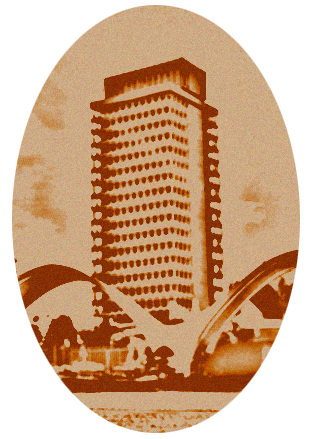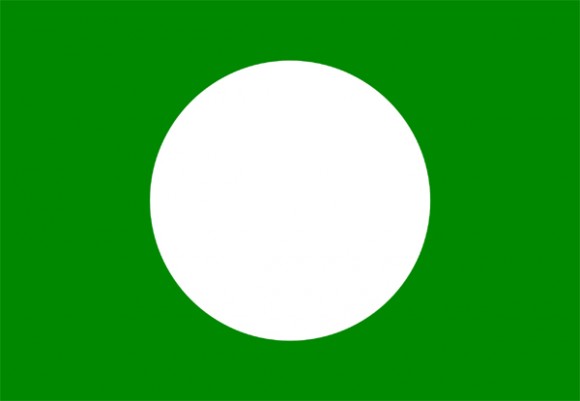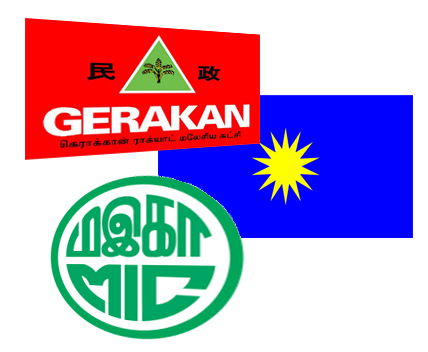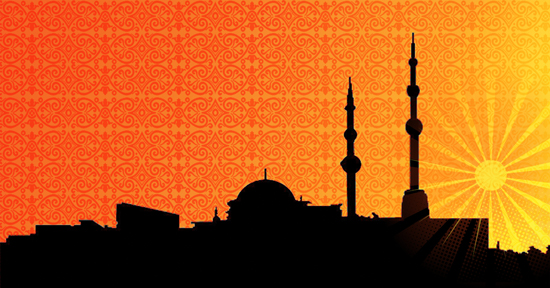 SHOULD Malaysia be an Islamic or secular state? The Nut Graph asked 222 Members of Parliament (MPs) this question as part of its MP Watch: Eye on Parliament project after the 2008 general election.
SHOULD Malaysia be an Islamic or secular state? The Nut Graph asked 222 Members of Parliament (MPs) this question as part of its MP Watch: Eye on Parliament project after the 2008 general election.
Before 2001, many Malaysians would probably have said confidently that although Islam was the official religion, Malaysia was no Islamic state. However, in 2001, former Prime Minister Tun Dr Mahathir Mohamad unilaterally announced Malaysia’s status as an Islamic state. Many protested, even PAS. Its spiritual leader Datuk Nik Abdul Aziz Nik Mat reportedly scoffed at Mahathir’s pronouncement, saying, “You can talk all you want. You can declare a piece of wood to be gold, or a wheelbarrow as a Mercedes, but in reality, nothing has changed.”
The debate on Malaysia’s Islamic or secular status has continued since. The myriad responses received from the 113 former MPs who responded to The Nut Graph’s question demonstrate that the issue is far from settled including in the upcoming 13th general election. Find out what each party in Barisan Nasional (BN) and Pakatan (PR) thinks about this issue before you go to the polls.
Umno vs PAS

 Interestingly, from our sample of MPs who responded, more MPs from Umno than from PAS, which is well-known for its open aim to set up an Islamic state, said Malaysia should be an Islamic state. Of the 24 Umno MPs who responded, 13 said Malaysia should be an Islamic state. Most of the 13 in fact said Malaysia was already an Islamic state.
Interestingly, from our sample of MPs who responded, more MPs from Umno than from PAS, which is well-known for its open aim to set up an Islamic state, said Malaysia should be an Islamic state. Of the 24 Umno MPs who responded, 13 said Malaysia should be an Islamic state. Most of the 13 in fact said Malaysia was already an Islamic state.
The impact of Mahathir’s 2001 pronouncement was clearly demonstrated in Umno information chief and Pontian MP Datuk Ahmad Maslan’s response: “The previous prime ministers have mentioned that Malaysia is a Muslim/Islamic state, so I won’t contradict them.”
When it came to PAS MPs, the majority of respondents were coy about declaring their intentions for Malaysia to be an Islamic state. “Malaysia should be a baldatun tayyibatun wa rabbun ghafoor,” said deposed Perak Menteri Besar Datuk Seri Mohammad Nizar Jamaluddin (Bukit Gantang), meaning a state that is virtuous and forgiven by almighty God. “Whatever its name, it must have those qualities and philosophy.”
Two PAS MPs said the people should decide on this issue. Others, like Siti Zailah Mohd Yusoff (Rantau Panjang), said it didn’t really matter what Malaysia was called, as long as there was justice and fairness for all parties.
Several PAS MPs, such as Kuala Terengganu’s Mohd Abdul Wahid Endut, answered the question directly: “[Malaysia] is currently a secular state. PAS, as an Islamic party, would like to have an Islamic country because we believe that this system will give all people fairness and opportunities.” He added that an Islamic state had nothing to do with “fanaticism”, but was about providing justice for all.
Islamic credentials
The Nut Graph spoke to political scientist Wong Chin Huat on why more Umno MPs were willing to declare that Malaysia should be an Islamic state, compared with MPs from PAS.
“It’s a matter of fighting for things you do not have,” says Wong. “PAS has strong Islamic credentials, and they can afford to appear to focus more on democracy and stress less on the Islamic state. Umno, on the other hand, has no Islamic credentials. Without the [Islamic] substance, form becomes very important.
“In 2002 and 2003, PAS was really [vocal] about setting up an Islamic state, but not so today,” says Wong. “PAS is no longer a fringe party. They are confident of holding on to their Islamic voter base and are now focusing on expanding their non-Muslim support.”
Wong disagrees with some PAS MPs’ statements that it “did not matter” what Malaysia was labelled. “It is very important,” he argues. However, he notes that the term “secularism” has been tainted by years of demonisation by both PAS and Umno.
PKR contradictions
![]() Barring a few anomalies, PAS and Umno MPs held broadly consistent stands. When it came to Parti Keadilan Rakyat (PKR), however, respondents clearly contradicted one another. Three PKR MPs said Malaysia was an Islamic state, with Amran Ab Ghani (Tanah Merah) saying that Tanah Melayu began with the coming of Islam. Five other PKR MPs, including then vice-president Lee Boon Chye (Gopeng), said Malaysia was a secular state and should remain so.
Barring a few anomalies, PAS and Umno MPs held broadly consistent stands. When it came to Parti Keadilan Rakyat (PKR), however, respondents clearly contradicted one another. Three PKR MPs said Malaysia was an Islamic state, with Amran Ab Ghani (Tanah Merah) saying that Tanah Melayu began with the coming of Islam. Five other PKR MPs, including then vice-president Lee Boon Chye (Gopeng), said Malaysia was a secular state and should remain so.
Yet another three, including vice-president Sivarasa Rasiah (Subang), said Malaysia was neither an Islamic nor secular state. And the remaining majority, 10 altogether, including Selangor Menteri Besar Tan Sri Khalid Ibrahim (Bandar Tun Razak), strategic director Chua Tian Chang @ Tian Chua (Batu), and Opposition Leader Datuk Seri Anwar Ibrahim (Permatang Pauh), found ways to not answer the question directly.
“Muslims are averse to the Western notion of secularity because to them it means the public square is naked, void of any space for religion,” said Anwar, evading the question skilfully. “Malaysia should continue to be a state where the public domain is influenced by the universal values of Islamic religion, particularly justice and equality for all.”
To Tian Chua’s credit, despite his reply that he was not interested in engaging in the Islamic vs secular state debate, his nuanced response indicates that he is not in favour of a theocracy. “Civil society, political and economic institutions should not be subjected under the power of religious authorities,” he said.
Non-Muslims united

![]() MPs of BN component parties MCA and MIC, and the PR’s predominantly non-Muslim DAP were united in saying Malaysia should not be an Islamic state. Eighty percent of these MPs also said Malaysia was currently a secular state, with a small minority either saying it was a hybrid state, or not answering the question directly.
MPs of BN component parties MCA and MIC, and the PR’s predominantly non-Muslim DAP were united in saying Malaysia should not be an Islamic state. Eighty percent of these MPs also said Malaysia was currently a secular state, with a small minority either saying it was a hybrid state, or not answering the question directly.
DAP MPs were able to quote from various sources to demonstrate Malaysia’s status as a secular state. John Fernandez (Seremban) referred to the Supreme Court decision in Che Omar Che Soh v Public Prosecutor when then Lord President Tun Salleh Abas unequivocally held that according to its constitution, Malaysia was a secular state.
Several MPs referred to historical documents, stating that the nation’s founding leaders never intended Malaya to be an Islamic state. Charles Santiago (Klang) cited academician Joseph M Fernando’s research. Fernando documented that MCA and MIC representatives did not object to Islam being named the official religion in the constitution, as their Umno colleagues had reassured them it was intended to have symbolic, rather than practical, effect.
When asked why more DAP MPs were able to take such a principled stand on this issue, Wong says this is due in part to the party’s clearly defined constituency. “The DAP’s [voter base] is mostly non-Muslim and the urban, liberal Muslim minority. There is no cost for them to be principled on this issue.”
Wong contrasts this with the DAP’s PR partner, PAS. “It would be very costly for PAS to be principled on this issue even if they wanted to move on [from the Islamic state label]. It would affect their identity, because people might say, ‘What’s the difference between PAS and Umno?’”

Secular state
Wong says it is important for MPs to continue stressing that Malaysia is a secular state, and that the term is properly explained to the public. “Secular state does not mean an atheist state. It also does not mean we will become like France or US, where they’re very strict about religion not playing any part in the state.”
Wong says Malaysia is more like the UK, where the Anglican Church is the established state church. Although this is the case, the church and its followers have no special legal position in the UK compared with other religions. “We are a secular state in that sense, where every citizen is treated equally,” says Wong. ![]()
This essay first appeared exclusively in Understanding the Dewan Rakyat, together with other analyses on how our government works. The book also contains the profiles of the current 222 MPs and how they and their parties would vote on key issues of democracy. The book was launched by Speaker of the House Tan Sri Pandikar Amin Mulia at the Dewan Rakyat on 23 March 2011. It is available at PusatLoyarBurok.


mollylouis says
A country like Malaysia, which is multi-religious, multi-racial, multi-ethnic and multi-cultural has never been an Islamic state and never will be one.
ellese says
Nut Graph must go deeper. You must ask PAS Malay supporters what their leaders say to them on Islamic state. With you some are evasive. But I have never met Malay PAS members ever to deny that they don’t support Islamic state (as per their version). To them it’s being imbued as a sin of not supporting it and regard it as rejection of Islam. To them Umno is a sinner for not adopting their brand of Islamic state. Thus their MPs will never say they don’t support Islamic state (PAS version) including Hadi. So don’t kid us around that there are less PAS MPs for Islamic state. Chin Huat is just playing along [with] Nut Graph’s spin.
So go a bit deeper. Chin Huat as usual is biased and you can’t get the true picture from him. Whether we’re an Islamic or secular state, it’s a different issue. We are definitely not secular in the ordinary meaning of the word. Our constitution makes express preference to Islam and its practices than other religions. We have religious authorities and courts which dictate the social conduct of the majority of the people in Malaysia. It cannot be secular by any means.
On whether we’re Islamic, there’re various versions under shariah. We’re definitely not the aspired PAS version of full fledged Islamic country model but do fit in other less stringent criteria by scholars.
With PAS becoming more dominant, and if PR do win, don’t be surprise [with] the grassroots demands to implement the Islamic state in particular Hudud laws. It’s PAS raison d’être.
neptunian says
UMNO says “vote PR and Malaysia will become a Christian state, over run by Chinese because of DAP”.
MCA says “vote PR and Malaysia will become an Islamic state with Hudud, because of PAS”.
So, my dear ellese, which version is right? Or do we assume that BN talks with forked tongue?
JW Tan says
Sure, I can see in a PR government PAS supporters will call for some Islamisation measures. But I can also see DAP and PKR supporters pushing back. In the end, there will be a discussion, and there will be a compromise. If it is not an acceptable compromise, then the PR government will be voted out in the next election.
I certainly don’t support a PR government forever more. But we’ve had a BN government for too long. They have forgotten who they serve.
lex says
Well said, well said…
Sunna Sutta says
To answer the question whether or not Malaysia is a secular state, two fundamental questions must be answered. One, is there a complete separation between the state and religion, and if so is our nation officially neutral in matters of religion (i.e. does not support a specific religion)? Two, does Malaysia have civil laws, i.e. our nation does not have laws based on scripture (such as the Syariah)?
If the answer to both questions is yes, then Malaysia is indeed a secular state. However, in fact both questions cannot be answered with an emphatic yes or no.
While it is indeed true that Islam is the official religion of Malaysia, there is no question at all that the Constitution of Malaysia specifically states that all religions are tolerated. However, it is undeniable that Malaysia officially supports only one religion. One clear piece of evidence of this is that state funding (and therefore taxpayers’ money) is provided solely to Islam for the building of mosques, remuneration of Islamic clerics, etc. Another strong piece of evidence is Islamic Religious Education is the only type of religious education permitted in the curriculum of state-funded public schools. On a Likert scale of 1 to 5 (1 = secular, 5 = Islamic), I would give a rating of 4.
However, if we consider the laws of our country, we have a different picture. By and large, our laws are predominantly based on civil law, e.g. if one is convicted of theft the same law and therefore punishment applies to all Malaysians, Muslims or otherwise. However, to a limited extent some aspects of Syariah – especially family law and some matters pertaining to morality, e.g. khalwat but not zina (adultery) – are applied on Muslims but not on non-Muslims. Thus, on a scale of 1 to 5 with respect to law, I would only give a rating of 2.
If we take the average of the two, then we only get a rating of 3 – the exact middle point. In other words, it is ambiguous. Malaysia is neither an Islamic state nor a secular state.
williem says
DAP is against Hudud and PAS is adamant. PKR is waiting for eggs to hatch. The ideological contrast is too great. Only PKR can accommodate both but if PAS bulldozes its way, some PKR MPs may think twice. PR cannot rule without either. They cooperated in 2008 but only for state governments. Now the stakes are very high -the Federal Govt. PAS has indicated, no cooperation no problem. UMNO would then come into the story, [with] PAS’s condition [for] Hudud.
Not enough seats for the magical majority? [When there’s a] will, [there’s a] way. Take from minor parties, independents who are friendly and remove corrupt MPs and force by-elections. They’ve got 5 years to plan. So who says cannot implement? Politics is not for gentlemen. DAP [might] only have 51 MPs max elected, plus non-Muslims cannot oppose the force.
In the 2002 Terengganu assembly, UMNO MPs follow suit even if their HQ said to abstain from voting. It is the will of the Almighty they submit to, not man and who of them want to be seen as committing a sin. Likewise in Parliament, PKR Muslim MPs will also have no choice.
Actually under Syariah Law, life is still normal since Islam allows the pagans to do their own worship and practice, but our lifestyle and habits will change dramatically. Citizens will be classified as believers and non-believers, creating 2 levels of citizenship. No difference to what is now experienced as Bumi and non-Bumi but under Syariah, freedoms are [defined according] to their interpretation and privileges are for the believers.
BN introduced mild elements of Syariah to challenge PAS. GE13 is critical. With UMNO’s partners eliminated, it now seeks new allies leading to this path.
It’s useless to argue about our good laws. The constitution can change and [people will adhere to theology]. In theology a council will brainstorm ideology and dictate policy to Parliament to implement, reducing the august house to a rubber stamp. When such a system is installed, dismantling it will be quite impossible and illegal. It would means revolt in the eyes of the world. Look, Iran, a monarchy until overthrown in 1979 has been Islamic ever since. The 2009 election wanted change but the PM’s hands were tied.
Better discuss who can maintain present system and how to prevent Syariah law from taking permanent root.
neptunian says
Better syariah law than “selective” law. I lived under syariah for many years in Pakistan, during Zia’s time. Did not cramp my lifestyle too much.